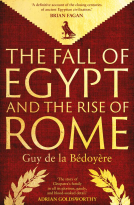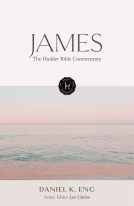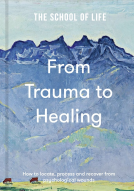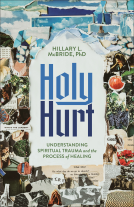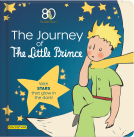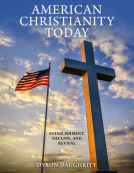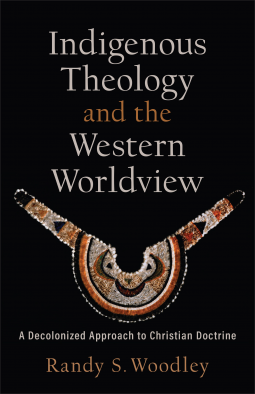
Indigenous Theology and the Western Worldview
A Decolonized Approach to Christian Doctrine
by Randy S. Woodley
This title was previously available on NetGalley and is now archived.
Send NetGalley books directly to your Kindle or Kindle app
1
To read on a Kindle or Kindle app, please add kindle@netgalley.com as an approved email address to receive files in your Amazon account. Click here for step-by-step instructions.
2
Also find your Kindle email address within your Amazon account, and enter it here.
Pub Date 19 Apr 2022 | Archive Date 19 Jun 2022
Baker Academic & Brazos Press | Baker Academic
Talking about this book? Use #IndigenousTheologyandtheWesternWorldview #NetGalley. More hashtag tips!
Description
Written in an accessible, conversational style that incorporates numerous stories and questions, this book exposes the weaknesses of a Western worldview through a personal engagement with Indigenous theology. Randy Woodley critiques the worldview that undergirds the North American church by dismantling assumptions regarding early North American histories and civilizations, offering a comparative analysis of worldviews, and demonstrating a decolonized approach to Christian theology.
Woodley explains that Western theology has settled for a particular view of God and has perpetuated that basic view for hundreds of years, but Indigenous theology originates from a completely different DNA. Instead of beginning with God-created humanity, it begins with God-created place. Instead of emphasizing individualism, it emphasizes a corporateness that encompasses the whole community of creation. And instead of being about the next world, it is about the tangibility of our lived experiences in this present world. The book encourages readers to reject the many problematic aspects of the Western worldview and to convert to a worldview that is closer to that of both Indigenous traditions and Jesus.
Available Editions
| EDITION | Other Format |
| ISBN | 9781540964717 |
| PRICE | US$21.99 (USD) |
| PAGES | 160 |
Featured Reviews
"Sometimes we must become almost entirely disenfranchised so we understand what the common good looks like."
"Indigenous Theology and the Western Worldview" is a must read for any aspiring theologian. Not only does it provide a challenge to the prevailing Western theological paradigms, it is also a heartfelt treatise of the Indigenous soul. It is beautifully written and challenging to anyone who is willing to listen.
 Justin C, Media/Journalist
Justin C, Media/Journalist
Woodley's work has a mildly disorienting effect, in a good way, in approaching the gospel from a different starting point. In looking at the differences between Indigenous and Western approaches, he not only articulates key points, but he does so without primarily engaging in the method we might expect (strict logical argumentation). He states that "pedagogy is more important than content when we're teaching," and uses stories and description more than argument.
Throughout the book, he raises a number of important questions, introduces key topics (I feel like I need to reconsider the role of land in my own theology), and provides some of his research. His experience in missiology offers particular insight.
There's plenty here I'd have to think about some more, and the questioning of an accepted framework in a thoughtful way proves to be quite useful.
 Floyd J, Reviewer
Floyd J, Reviewer
Several years ago I learned that religions, all religions, got their start in Genesis 1:1, “In the beginning God created the heavens and the earth.” From this simple beginning all religious movements had their beginning. Thus, I am not surprised that we find remnant. Robert Woodley takes the stories handed down through Indian Culture to share their understanding God and His Creation, in much the same way that Jesus used Parables to share truth with his followers.
I was first drawn to the work of Dr. Woodley after noting his affiliation with George Fox College and Portland Seminary in Oregon. I was further drawn to this book when I found Dr. Woodley earned his PhD through Asbury Seminary, Wilmore KY. I felt less comfortable with the author's attempt to merge his Christian faith with his Native American background, though I appreciated his attempts to do so.
The book is a compilation of the 2019 Hayward Lectures made at Acadia Divinity College in 2019. The written lecture series is composed of three lectures and a set of interview questions following the lecture itself. Though I do not agree with all that I read, I did find the book readable and understandable. Writing as a Native American, this reader gains insight into an unfamiliar culture that has shaped much of American history - for that he is grateful. I recommend the book to pastors and others who work regularly within the indigenous population of the North American continent. I give the book four stars.
______________
This review is based on a free electronic copy provided by the publisher for the purpose of creating this review. The opinions expressed are mine alone.
 Ashley H, Reviewer
Ashley H, Reviewer
The first thing I need to say about this book is that it is incredibly well written. Dr. Woodley is exceptionally thorough and approachable in explaining what he believes and showing what is common to many Indigenous people. All in all, it is a very easy and short read and very enlightening.
That said, there’s a few noteworthy concepts in his explanation of his beliefs. There is quite a chasm of differences between western theology and indigenous theology, as described in this book. For example, every chapter is ended with a fictional Q&A session to help summarize and expand on what was previously discussed in the chapter. On page 96, Dr. Woodley takes a look at soteriology. When asked, “I wonder about original sinon the context of Jesus being a redeemer. Do indigenous people have a sense of rebellion against God, who is spirit and not material?”
Dr. Woodley fictionally answers, “I actually think that was something that came about largely under Augustine and Jerome and Ambrose, and some other folks who were basically giving total control of people’s salvation to the Catholic Church at the time. I don’t think the Bible actually teaches that, so therefore, I don’t believe it. But I do believe that we are all humans who make mistakes, and hopefully, we learn from our mistakes. On to redemption. So, what is Christ’s role to restore harmony? The disruption of harmony is by not accepting our limitedness, both individually and corporately and structurally. Christ came to save us, or better said, to heal us, so that we could be people who restore harmony. That’s my understanding, and this healing is not just individual but is about healing together. It is the whole community of creation that God is interested in, not just human souls, but everything.”
This is not only not consistent with the history of the church, but it also highlights the emphasis of an earthly minded theology from Indigenous people. This is also a concept reiterated throughout the book.
Additionally, Dr. Woodley seemed to devalue the importance of scripture in lieu of having personal experiences. It’s not that the Bible had no value to him or that it had no place in the Christian life, but rather that it wasn’t the sole or main way that God communicates to his people.
When it comes to disagreements and contrasting your views with that of others, it’s imperative to also make sure you’re representing the “others” fairly, in terms that they would agree with. Unfortunately, that is a component that seemed to be missing at various points of this book.
With all of this, I realize that it’s impossible to come to the Bible or Christian faith without having biases. Many times, people tend to read the Bible specifically looking for confirmation bias. However, it’s important to look at the text with proper context. The biggest area of downfall here wasn’t that Dr. Woodley wasn’t seeing the Bible in the western way, but rather that he completely neglected a Jewish reading of the text. Understanding what Jews read when they come to these texts helps bring much needed context and life to what we look at.
While I disagree with much of the theological content expressed, I do greatly appreciate the information presented and the opportunity to learn more about an Indigenous perspective. I would recommend any mature believer read this if they are looking to gain information.
 Reviewer 815381
Reviewer 815381
This beautifully written book was engaging from start to finish. Woodley does an incredible job at making you stop and think about the relationship between Indigenous theology and Christian theology. If you are wanting to build your understanding and relationship with Indigenous people you should read this book.
An Indigenous Christian considers how Indigenous perspectives can enhance understanding and push back against many prevailing aspects of the Western dominance.
The author lives as an Indigenous man in Western society, and is not uniformly against all things Western. He can see the benefits sometimes in categorization and specialization and the Western approach to knowledge and insight.
Yet the author perceptively critiques and challenges the Western approach to land, property, and people, and also points out the limitations to categorizations. He explains well many of the Indigenous theological and practical emphases and how they bear their own effective witness to what God has accomplished in Jesus.
A highly recommended work for those steeped in Western perspectives to broaden their horizons.
**--galley received as part of early review program
